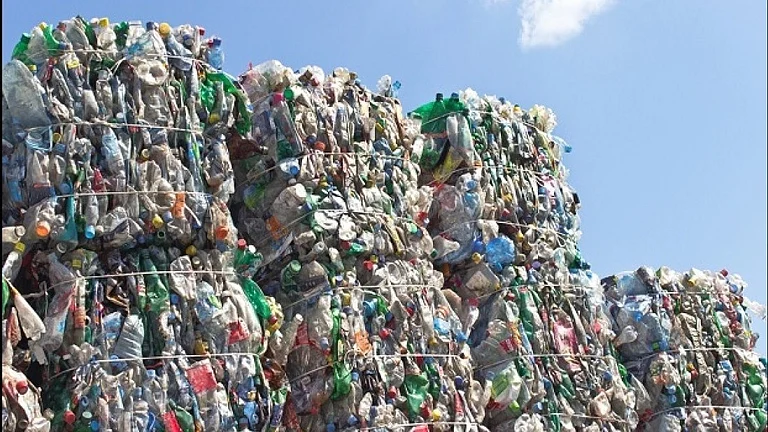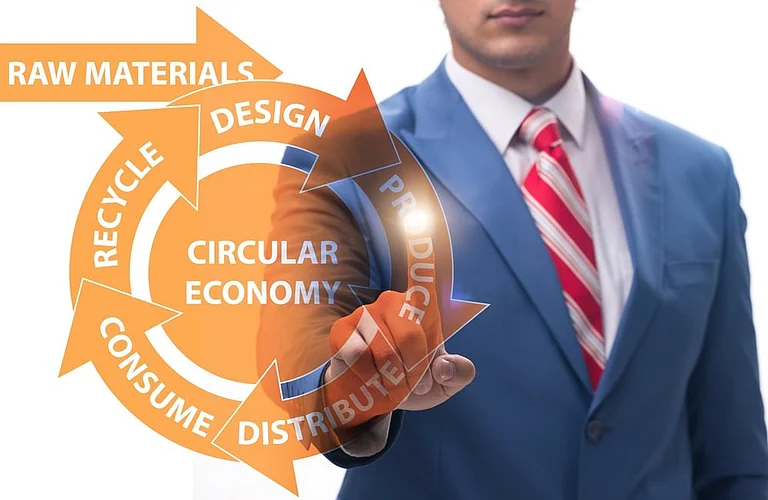The World Environment Day has been a platform for raising awareness on environmental issues by bringing together people across the globe in a shared mission to safeguard and restore our planet.
How Businesses Hold the Power to Solve the Plastic Pollution Crisis
Much of the planet is swimming in discarded plastic, which is harming animal and human health. Plastic pollution is not just an environmental issue—it is a public health and economic crisis of pandemic proportions
Environmental challenges—from climate change to biodiversity collapse—are escalating rapidly. One of the most pressing among them is plastic pollution, a crisis we created and must now confront urgently.
Plastic pollution has quietly infiltrated every corner of our planet – our oceans, soil, food and even our bodies. It spreads across borders without discrimination, affecting ecosystems and human health.
According to United Nations Environment Programme, every year, over 400mn tonne of plastic are produced globally. Shockingly, more than one-third of it is single-use, designed to be discarded after moments of use but lasting for centuries in the environment. More than 11mn tonne of plastic enter our oceans annually, endangering marine life and contaminating the food chain.
Researchers have estimated that one mn bottles of water are being bought every minute around the globe, with most of it ending up in oceans and water bodies. Health issues caused by microplastic contamination are a major concern, whereas plastic litter clogs drains and water bodies, causing flooding in many cities.
Most of the single-use plastic produced today is derived from fossil fuels. The extraction and transport of those fossil fuels and the manufacturing and disposal of plastics, all generate carbon emissions that are responsible for global warming, compounding the ill effects of plastics.
These facts underscore the scale and urgency of the problem. Plastic pollution is not just an environmental issue—it is a public health and economic crisis of pandemic proportions.
Turning the Tide
In the face of such daunting statistics, innovation emerges as our most powerful tool. We must redesign products, reimagine systems and re-engineer supply chains to eliminate waste and promote circularity.
Corporates can ban the use of single-use plastics, ensure 100% of plastic is recycled and use tools like AI to optimise energy, waste and materials management.
Other advancements include edible packaging alternatives, enzyme-based recycling technologies and smart sensors and automation to track plastic flows in real time.
Tackling plastic pollution requires an ecosystem approach:
Governments must legislate bans and create extended producer responsibility (EPR) frameworks
Industries must redesign products and adopt zero-waste goals
Consumers must shift behaviours and support sustainable brands
NGOs and academia must build awareness and generate local solutions
Solutions Exist: We Must Scale Them
We are not short on solutions—we are short on implementation
Circular economy strategies that prioritise reuse over disposal
Green campuses and plastic-free office policies
Material science breakthroughs that replace plastic in packaging
Digital dashboards and traceability tools for supply chain transparency
The Decisive Decade
World Environment Day reminds us that beating plastic pollution is both a technical challenge and a health imperative. The planet can survive without plastic—but can we survive the consequences of our addiction to it?
This is the decade to:
Shift from awareness to accountability
Replace plastic convenience with sustainable choices
Turn innovation into action through collective will
Let us build a world where plastic is no longer pollution, but a material designed with purpose, responsibility and circularity.
Behavioural Change—Progressing Toward a Cleaner Future
Beating plastic pollution is not just a matter of technology or policy—it is fundamentally about changing human behavior. Our daily choices, from how we shop to how we dispose of waste, have a direct impact on the environment. To curb plastic pollution, we must shift from a culture of convenience to a culture of consciousness.
This change begins with refusing single-use plastics–like straws, cutlery and packaging–and choosing reusable, biodegradable alternatives. It also means adopting habits such as carrying our own bags and bottles, sorting waste at home and supporting brands and businesses that prioritise sustainability and circularity.
Importantly, behavioural change must be supported by awareness, education and systemic nudges –like incentives for sustainable choices and clear labelling. When individuals, communities and organisations collectively adopt small, consistent changes in behaviour, the ripple effect can lead to a profound reduction in plastic waste.
We beat the pandemic by changing habits, trusting science and standing together. We flattened the curve with collective action. Beating plastic pollution will take the same resolve, but the reward is a healthier planet for generations to come.
The author is Associate Vice President, Head—Climate Action at Infosys. (Views expressed are personal.)



